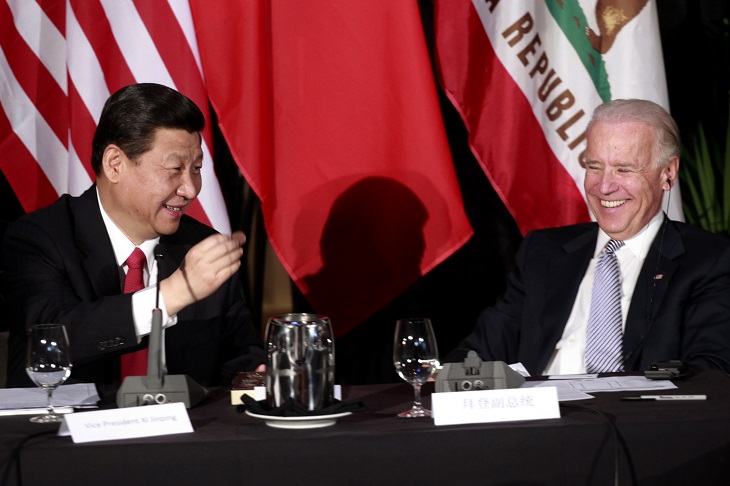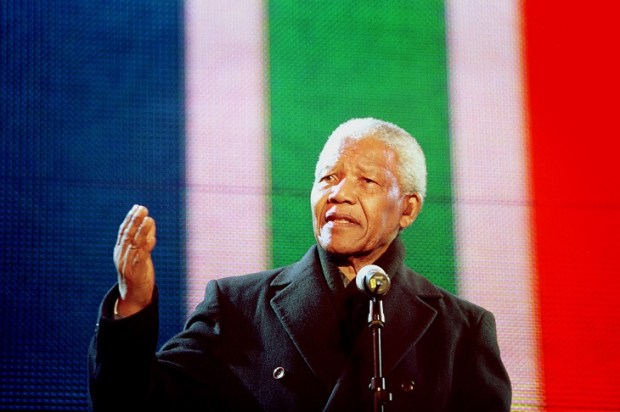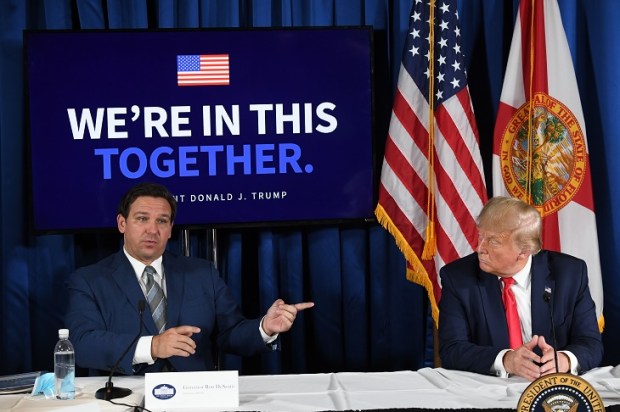The Chinese Communist Party is gnashing its teeth at the theater of history, desperate to enter stage left as King, with diminishing regard for collateral damage.
Absent any historic course-corrections, China will move to capture Taiwan. The risk of a great power conflict in the Pacific will rise to levels not seen since 1941.
How this plays out for Australia will be complex, but will impact one of two simple and immediate outcomes: war, or the meek acquiescence to a new world order.
In the grand pacific equation, old alliances and past assumptions must be set aside to gauge the real status of Australian security.
As nothing between nations is certain in war, the only perpetually honest metric of survival is the capacity of the nation-state to defend itself, and itself alone.
This taken, Australia in 2022 lies more uniquely vulnerable to capture or destruction than any Western nation in living memory, save for New Zealand.
Australia enters this 21st Century strategic catastrophe on the back of two fallacies spanning its first two decades. Shockingly, she is poised once more to embrace yet another at the dawn of the third.
The first fallacy is that of American judgment.
The healthy functioning of a rules-based order requires members to count on the good judgment of the order’s leader. Since the end of the second world war, America has rightly been that leader.
But America entered the 21st Century in trauma, and in that trauma the leadership erred. The September 11 terror attacks pivoted the then unassailable hegemony toward its ‘forever wars’ and away from its emergent strategic threat. Blinded by the sands of the Middle East, America misread the oceans of the Middle Kingdom.
Radical Jihadist terrorism posed a serious threat to America, but it was never one that could be met with unlimited military solutions. It required partial material warfare, and total cultural assault. Only Western self-belief could ultimately defeat Eastern theological terror.
In its pain, confusion, and eventual corruption, America’s interventions in Iraq and Afghanistan instead became inflated, whilst its cultural confidence was shattered. By the end of the 21st Century’s first decade, there was not a single American general who could articulate a coherent mission purpose or strategy. Equally troubling, there was no American politician who could articulate a coherent purpose for American moral leadership.
21st Century American preoccupation with the Middle East gave China clear air to sow the seeds of its massive military build-up. Concomitant laissez-faire diplomacy too, allowed China to prime the pump of its international program of economic gangsterism – a strategic gambit that gave rise to the Belt and Road initiative as the most visible of its soft colonisation schemes.
Australia’s leaders should have then, in these years shared by Coalition and Labor governments, wised up to the fact that American failures of leadership – failures of judgment – were emerging as serious threats to Australia’s future.
They did not.
Indeed, to this day, the entire apparatus of Australian self-defence is predicated on American capacity to exercise good judgment in the management of the affairs of the Pacific. But Australia must surely now contemplate a rules-based order where American strategic competency lies greatly diminished.
The second fallacy is that of American strength.
The election of Barrack Obama on the eve of the 21st Century’s second decade was a watershed moment for the politics of race and symbolism. But the consequential substance of the Obama era was a catastrophic crumbling of both relative, and absolute American power.
Obama’s Presidency reads as a litany of damaging blows to American strength. Chief amongst these are his personal failings as President. There are two of singular importance – his handing nuclear weapons to Iran, and his failure to enforce his own stated ‘Red Line’ in the South China Sea. Obama’s refusal to exercise American strength at a time when it actually could, was a disastrous turning point for Pacific nations, and the West at large.
If the long middle-eastern conflicts were a slow awakening, then the failure to act on the CCP’s reclaiming and militarisation of its garrison islands in the South China Sea should have been a blaring red alert for Australia’s military and political establishment.
Surely the great Chinese geo-strategic leap southward would expose the fallacy of Australia’s reliance upon American strength?
It did not.
There were proposed solutions, dud solutions, and ultimately no solutions at all. And while Australia’s politicians, bureaucrats, and senior military officers fiddled, Obama and his lieutenants did yet more to burn American strength down.
It was Obama who handed command of America’s military to increasingly Woke administrators – men like Mark Milley, who saw no harm in betraying American battle plans to the Chinese, but quivered with excitement at the prospect of rooting out ‘White Rage’ in his own Army.
Obama too, undertook the loathed sequestration of the American Armed forces – initiating spending caps that hobbled training capacities, cut benefits to military families and their community services, and neutered the military’s ability to modernise in response to emerging threats.
But the most dangerous, fundamental change to the American military in the 21st Century has been to its morale and service culture. A rising politically-correct officer class; Woke, mandatory workplace training; and latterly, the Biden regime’s mind-bogglingly pointless persistence with vaccine mandates, has turned its core constituency – God-fearing, country-loving young men – away in droves.
By August this year, the US Army had enlisted only 52 per cent of its target for new soldiers, with mere weeks remaining in the recruitment calendar.
The US Air Force too, is in dire straits. By June this year, recruiters were at least 4,000 airmen short of their fiscal-year target. Before this year, the Air Force hadn’t missed its target since 1999, and before that, since 1979.
But none of this is surprising to those who’ve watched on in horror as America’s military has consumed itself with latter-day Wokeism. In May this year, Anderson Air Force base – one of the United States’ largest Pacific commands – circulated a detailed list of authorised and unauthorised language, citing the removal of masculine and feminine pronouns as being integral to improving the force’s ‘lethality’.
It would be laughable if it weren’t so tragic – and so utterly dangerous.
Anderson is spitting distance from the Taiwan theatre – at the very vanguard of America’s Pacific defences. Its bizarre misallocation of management time and resources is the stuff of parody. It is also wholly consistent with the norms of military culture, from Obama’s time onward.
The end result is a US Military that though still the most powerful in the world, is increasingly diminished in both force-projection and force-execution capacity.
The lesson for Australia is simple – even with America fully committed to protecting us, we can no longer rely on her raw power to save us.
American hardware, though still superior, has not kept relative pace far ahead enough of China. But more troubling, and as shown, the spiritual core of the US military – its men, are deserting in droves.
The third, and most dangerous fallacy, is that of American resolve.
Australians should have been rightly encouraged by the AUKUS announcement this time last year. Finally, some progress on hard weaponry. However, one must also pause to consider that the success of AUKUS in defending Australia is not predicated on the growth of independent Australian power. It is predicated almost solely on the ongoing resolve of America as a fully invested war-fighting partner in the Pacific.
AUKUS means little without full and unwavering American commitment to fighting a war far from its own shores.
But a cursory glance at American public opinion, especially on the centre-right, should send shivers up Australian spines.
In Orlando last year, at America’s nascent National Conservatism convention, Michael Anton, senior fellow at the Claremont Institute, raised the spectre of China’s now fully operational anti-carrier attack options. Anton asked his audience how America might respond if and when, during a US-led defence of Taiwan, a single successful Chinese strike sent 6,500 young Americans (the aggregate of a carrier crew and its ‘wing’ detachment) to watery graves in the Pacific.
Perhaps, speculated a small minority of attendees, a kind of Pearl Harbour effect might occur? The nation would perhaps rally, and a new age of American patriotism arise.
One would be foolish to expect this.
The prospect of tens of thousands of gruesome deaths – childbearing-age women now increasingly represented among the bodies – is a burden Americans are increasingly unwilling to bear for someone else’s security. Australia’s politicians may of course hope and pray America will still foot the bill, but they must surely realise that hope is a fool’s policy, and prayer the refuge of the condemned.
There are deeper reasons too, beyond the wartime ledger, that see 21st Century America longing to relinquish its role as arbiter of Pacific order. Those reasons have to do with the reclaiming of a more virtuous, less crusading, less imperial America.
In George Washington’s farewell address, the retiring President warned his countrymen against deploying an interventionist foreign policy. The United States held fast to this rule for the first century of its independent existence. Its second century, from Woodrow Wilson to George W. Bush, is by historical comparison, a somewhat radical deviation from its founding ideals.
Australians, of course, could be forgiven for mistaking the spirit of 20th Century America for the spirit of America for all time. After all, the America that rules brashly and unselfconsciously is the only America that the Australian imagination has ever known.
But America does not, in historical sum, see herself in this way. She has not forgotten Washington, nor has her inclination to follow his wisdom diminished, as she looks to right her course in the third decade of the 21st Century.
In February this year, three eminent scholars of the American right, Patrick Deneen, Sohrab Ahmari, and Gladden Pappin published a landmark essay in the New York Times. They used their platform – justifiably – to attack America’s ‘Hawks’. They further called for a substantial recalibration of America’s foreign policy, in pursuit of a more virtuous national agenda.
But in a provocative, alarming closing argument, they further called on America to exercise an extreme avoidance of armed conflict, and to treat China as a ‘civilisational equal’.
Though these scholars’ aims are noble, the framing of China as a civilisational equal is a reckless and shocking dilution of hitherto assumed Western moral primacy.
But what should truly alarm Australia is that this was no renegade essay from an underground movement.
Deneen, Ahmari, and Pappin are prominent – if not conspicuous – leaders of the new American right’s intellectual class. They represent an unbroken train of humane and decent founding-era thought – thought that has persistently detested the Wilsonian turn outward, and holds in contempt the Bush-era wars of liberation.
And America the virtuous is not just a pipe-dream of intellectual conservatism. Indeed, for a growing number of everyday Americans, it is a worthy and necessary ideal – one not achievable without urgent surrender of the Yankee presumption to foreign intervention.
Donald Trump knew well this current of geopolitical reticence – and he surfed it unabashedly. Any future Republican President will quite rightly do the same.
It is entirely conceivable then, that through either the provocation of wartime tragedy, or the natural result of fermenting anti-war sentiment at home, that America may well upend all the assumptions and expectations that have underpinned its behaviour in the Pacific for the past 75 years.
The salient point here is that should this occur, Australia will struggle to do battle in the Pacific with borrowed hardware, and moral support as the only reliable American contributions.
As with our purchase of tanks suited to middle-eastern combat support, the effectiveness of our future submarine fleet is predicated on its integration into existing American battle plans. Yes, the nuclear boats will be more independently lethal than our current arrangements. However, they will do nothing to halt a Chinese advance without the full suite of accompanying warfare options provided by American Aircraft carriers, long-range bombers, amphibious assault teams, and of course, the omnipresent nuclear triad.
In the case of the latter, Australia should not underestimate its tenuous grasp on American nuclear benevolence. As a wartime annex of the American empire, Australia will enjoy heightened security under the nuclear umbrella. But should our continent be left to us and us alone, the deterrence incentive structure will change radically. Los Angeles will not be sacrificed to save Townsville.
Here is the unvarnished truth: an Australia that is fully serious about the circumstances it inherits, is an Australia that must prepare for war in the Pacific unaided by any foreign power.
This is such a radical break from the assumptions of the last century, that it paints a circumstance barely conceivable within our halls of power. Indeed, it is clear that so dire would an honest evaluation of our strategic circumstances be, our politicians have hitherto not found the stomach to face it, nor the imagination to overcome it.
Writing in 1930, Sir Keith Hancock, perhaps Australia’s greatest historian, warned that America could not realistically prevent an Asian power from invading the Australian continent. Hancock, with increasingly evident clairvoyance, said further, ‘It is even possible to imagine circumstances in which a descent upon Australia would be tolerated by the United States, as a guarantee of their own immunity.’
Those circumstances are quite possibly upon us. No sooner had Joe Biden stated last month that America would indeed defend Taiwan, than the White House walked back the President’s statement. Whilst the administration may well be simply trying to veil an aggressive posture in tried and tested strategic ambiguity, there should still be no mistaking that the American security establishment is keeping its bets well-hedged.
If for no reason other than prudence alone then, the urgent pursuit of an independent defence of our island continent must now be the operating assumption of all Australian military and political decision-making.
Australia’s ambition must be to rise as defender of its own shores, and as master of its own destiny. Should it succeed in that task, it will in the worst of times defend itself capably in war, and in the best, better realise itself as a worthy ally of like-minded powers.
Any help from old friends in accomplishing this task is welcome – but the presumption that it will arrive in the wished-for capacity, is the third and fatal fallacy in our Sino-American entanglement.
Ben Crocker is a Ramsay Centre for Western Civilisation Scholar in Washington DC, and Constitutional Fellow at The American Conservative. His Substack is Crocker’s Columns.
Got something to add? Join the discussion and comment below.
Get 10 issues for just $10
Subscribe to The Spectator Australia today for the next 10 magazine issues, plus full online access, for just $10.


























Comments
Don't miss out
Join the conversation with other Spectator Australia readers. Subscribe to leave a comment.
SUBSCRIBEAlready a subscriber? Log in